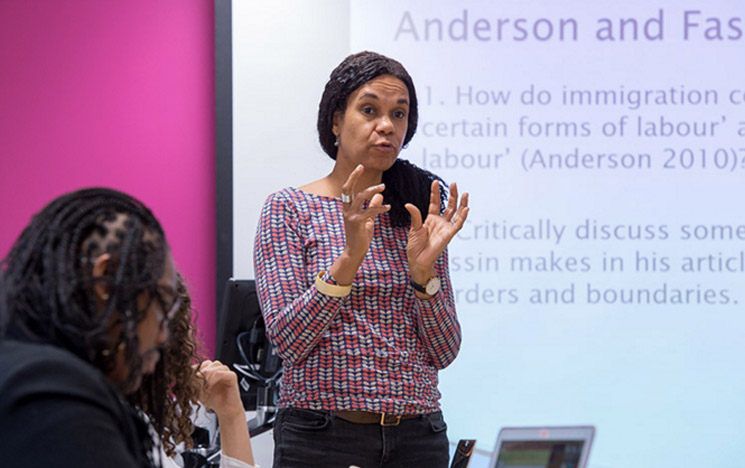Anthropology
Study at the home of the Institute of Development Studies – the best department for Development Studies in the world*. Browse our anthropology modules below, and if you're unsure what to study, follow our top tips for how to choose a module.

Browse our modules
You can see our full list of anthropology modules below.
Year 1
Year 2
Year 3
Not sure how to choose?
Follow our top tips for choosing your modules. You can also find out about our teaching structure, assessment process and how your credits transfer back to your home institution.
Find out more.
Which school will I study in?
You'll study in the Department of Anthropology which is part of the School of Global Studies.
Our expert academic staff influence debate on topics such as gender relations, migration and religion.
Find out more.
Our anthropology research
Staff at Sussex are helping to tackle epidemics like Ebola, and educate policy makers and frontline health staff.
Our research influences the way we teach, and you learn from academics at the forefront of their fields.
Find out more.
Contact us
If you are studying at Sussex for a semester or year and have questions, email sussexabroad@sussex.ac.uk.
*QS World University Rankings by Subject 2020. **The Complete University Guide 2021, *** The Guardian University Guide 2021 ****(Our campus is nine minutes by train from Brighton & Hove) survey by accommodation providers Student Living by Sodexo. Rankings based on full undergraduate degree at Sussex.